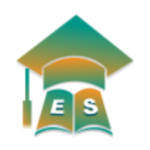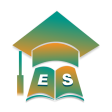Top 10 University Courses That Don’t Require Maths
Mathematics often seems inevitable, but it’s not everyone’s favourite subject, For those who don’t like numbers and equations, many Courses That Don’t Require Maths.
They focus more on critical thinking, analysis, communication, and creativity. some courses don’t require maths skills.
However, some programs may include basic maths or statistics components, depending on the specific curriculum and institution.
It’s always a good idea to check the specific course requirements of the university you’re interested in.
List of Courses That Don’t Require Maths
Here’s a look at University Courses That Don’t Require Maths
1. Psychology
Psychology delves into the human mind and behaviour, offering insights into how people think, feel, and act. This field covers various areas like clinical psychology, counselling, developmental psychology, and more.
While some statistics may be involved, many psychology programs focus more on qualitative analysis, theories, and case studies, making it an attractive choice for those less inclined toward mathematics.
2. Journalism and Communication
If you have a passion for storytelling, journalism and communication could be your ideal path. These courses teach skills in writing, editing, interviewing, and multimedia production.
Whether you’re interested in news reporting, public relations, or digital media, this field emphasises creativity and critical thinking over mathematical prowess.
3. Law
Law is another discipline where analytical and critical thinking skills are paramount, but mathematics is rarely required.
Law students learn about legal systems, ethics, and the intricacies of various types of law such as criminal, civil, corporate, and international law.
The focus is on developing strong reasoning, argumentation, and research skills.
4. English Literature
A course in English Literature is perfect for those who love reading and analysing texts.
Students explore literary works from different periods and genres, enhancing their understanding of cultural and historical contexts.
The emphasis is on developing interpretive skills and appreciating the nuances of language and storytelling.
5. History
History courses offer a comprehensive understanding of past events, societies, and cultures.
This discipline involves analysing historical documents, constructing narratives, and understanding the causes and effects of events.
While some aspects might require basic data interpretation, the primary focus is on critical thinking and qualitative analysis.
6. Sociology
Sociology is the study of society and social behaviour.
It examines how people interact within groups, the structure of societies, and the factors that influence social change.
This field often involves qualitative research methods like interviews and observations, and while quantitative research is also a component, it does not require advanced mathematical skills.
7. Creative Arts
Courses in creative arts, including fine arts, theatre, music, and film studies, are ideal for those with an artistic inclination.
These programs focus on developing creative skills and understanding the theory behind various art forms.
They prioritize creativity, expression, and technical proficiency over mathematical knowledge.
8. Philosophy
Philosophy tackles fundamental questions about existence, knowledge, ethics, and reason.
Students engage with the works of great thinkers, learning to construct logical arguments and critically evaluate different viewpoints.
This discipline is more about abstract thinking and logical reasoning, with minimal emphasis on mathematics.
9. Political Science
Political science explores the theory and practice of politics and government. It covers topics such as political theory, international relations, public policy, and comparative politics.
While some areas may involve statistical analysis, the core focus is on understanding political systems, ideologies, and behaviours, making it accessible to those who are less mathematically inclined.
10. Education
Education courses prepare students for careers in teaching, educational administration, and curriculum development.
This field involves understanding educational theories, child development, and learning methods.
While math is a subject taught in schools, you don’t need advanced mathematical skills to become an educator in other subjects or to work in educational policy and administration.
Conclusion
Choosing a university course is a significant decision, and it’s important to align your choice with your strengths and interests.
For those who don’t like maths, there are Courses That Don’t Require Maths.
They need skills such as critical thinking, communication, creativity, and analytical reasoning—without requiring a deep dive into the world of numbers.
Whether you’re interested in understanding human behaviour, exploring creative arts, or engaging in philosophical debates, there’s a course out there for you that doesn’t revolve around mathematics.
 Score 300+ and above in your UTME exams using the Exam Scholars CBT app.
Score 300+ and above in your UTME exams using the Exam Scholars CBT app.
This app helps students achieve great scores in the JAMB exams. The app consists of incredible features, such as mock mode, study mode, and practice mode. Also, the app gives answers and explanations to every question you come across in the app.






